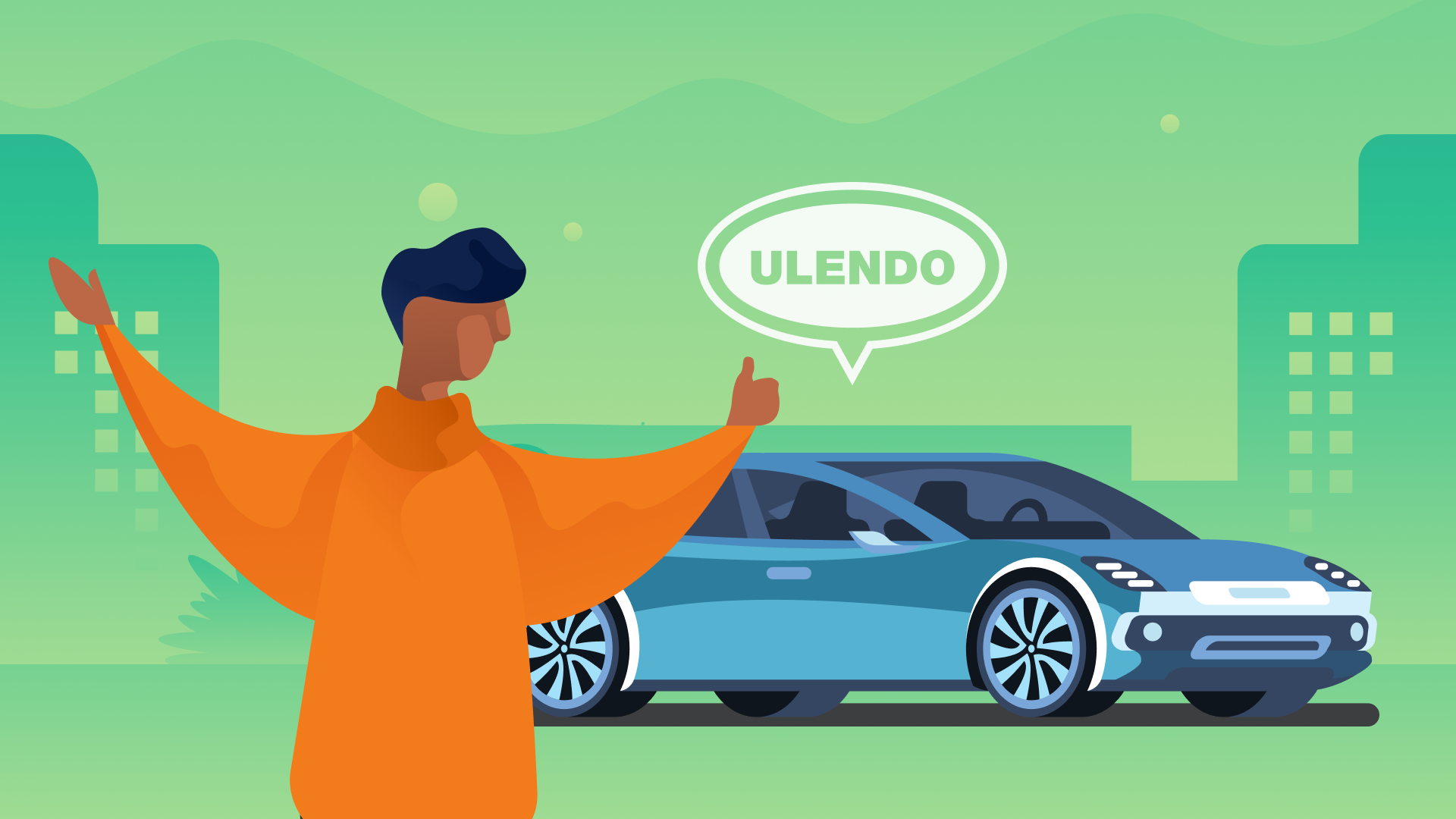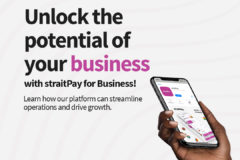Ulendo was the first ride-hailing app on the Zambian market. Inspired by the international success of Uber and Lyft, its founders aimed to give their own country a healthy and handy alternative to the existent shady taxi transportation.
Ulendo took off just as any other ambitious startup: with a well-designed white label app, own fresh and fruity branding, and an idea of how to fix local traffic. Having a safe and sound lift at a considerable price was not that easy in Zambia before Ulendo came. Especially for women, taking a taxi was often a dangerous quest.
Ulendo came to the market with a unique proposition — Lyft, Uber, Careem, or Grab were all not represented in the country. This oneness has made it easier to conquer the customers, of course. For instance, Ulendo was the first in Zambia to introduce the “girls drive girls” taxi, where both female passengers and drivers would feel completely out of harm’s way. It was also the first company to provide business-class transportation.
Yet the unique position in the market has also brought some unexpected challenges to the app owners. To begin with, there came the question of how to promote your app locally while being a part of the US App Store.
App store optimization: a kingdom for the right keywords
So this was the great problem. For App Store does not really support Zambia as a location, people here register their Apple ID in some other country — most often, the USA. Which does not matter for an app user, but is a huge bottleneck for an app owner:
- You cannot see if the search requests for your apps are actually coming from Zambia or the USA.
- ASO-wise, you have to compete with the apps on the US market (including Uber and Lyft) while they are even not your competitors in real life.
- You cannot learn anything from how your App Store competitors promote their apps — they are working with different market, different budgets for user acquisition, different everything.
The fact that Ulendo was the first local app to explore it all did not make the game any easier.
The founders knew that app store optimization of the apps (ASO in short) is a powerful tool. Consisting of various tools and techniques, app store optimization allows store users to find the apps fitting their expectations and needs the most. On the other hand, it gives app owners a possibility to promote their apps to already interested potential clients.
The key ingredients of ASO are keywords research and continuous adjustment, working with the creatives your app is represented by on the stores and paying enough attention to the reviews users leave to the app.
While experimenting with visual creatives and answering reviews are typically done in a way complying with the brand’s chosen ways of communication, for the keywords research it is often helpful to know which search terms your competitors are targeting. In fact, such knowledge provides you with about 60% of success. For Ulendo, this was impossible. In fact, they had no idea where to start.
Getting your ASO done without getting a burnout
So the aim was to invent unique keywords in order to promote Ulendo and get it on top of the US App Store, but exclusively for Zambian region. The startup founders were aware they do not have time or human resources to figure this out all by themselves. Fortunately, Onde, the company that built the white label apps Ulendo was using, provided app store optimization services along with several other types of marketing and user acquisition guidance.
Onde (Minsk, Belarus) is known for providing over 200 companies in 70+ countries with the software making it possible to compete with Uber and even outperform it on the local market. Other skyrocketing enterprises working with Onde system are Kaiian (Saudi Arabia), Ride (Ethiopia, this one was recently featured in TechCrunch), and Lefa (called out to be one of the brightest startups in Namibia).
The recipe of success Onde reveals seems rather simple: they offer marketing services and growth hacking sessions to the startups working with their software. The idea behind is to shape the future of transportation and make it more personalized, more mobile. The CEO of Onde, Eugene Suslo, emphasizes that the future of mobility is not about ride-hailing solely, it is about any service one can enjoy on-demand — think laundry, deliveries, even hairdressing.
From the Onde experience proves that the companies in rapidly developing markets (to name a couple, Ethiopia, Namibia, Oman, Brazil, Sudan) are the early adopters of innovative ride-hailing tech. The reason could be that the developing markets often jump over the transitional phases of any industry and move straight to the latest level of technologies available. As to transportation and mobility, many countries have skipped the communal, governmentally financed public transport stage and started developing highly efficient on-demand services right away.
Ulendo has turned to Onde’s app store optimization services in order to acquire the highest possible result within a short period of time without needing to hire a team of ASO experts. This helped to cut costs and avoid a burn-out.
Unexpected ways of store optimizing an app
Working with the US App Store meant for Ulendo that people would search for a ride-hailing app simply typing “taxi” or “cab” in and accordingly see all the apps in the US Store, including Uber and Lyft.
So at a brainstorming session with Onde, Ulendo owners thought of what their perfect app user looks like. The profile was rather uncomplicated:
- has a smartphone
- has a mobile Internet connection
- has money to pay for the ride.
This last requirement turned out to be the key to app store optimization success. The optimizers team has found out that the potential clients of Ulendo already use local banking apps from Barclays, IZB, Atlasmara, and FNB banks. Using the names of these banks as keywords for Ulendo app helped to target local customers in the US App Store.
As ASO is often a prolonged experiment on what works the best, Onde team tried adding the “banking keywords” to the title, subtitle, description, and keywords field of Ulendo booking app. To preclude any problems with the Apple review team, the brand names were not used in a direct form. The app was optimized with phrases like “Inspired by IZB, FBN” or “Inspired by mobile banking apps Atlasmara, IZB, FNB, Barclay” or “Ulendo: get taxi to your bank”. One can call it a sneaky way to get to the top. On the other hand, nobody got hurt or offended while the results were impressive.
In the App Store, optimization with the “banking keywords” got Ulendo to the top-5. The app got three times more impressions and app views than before. On Google Play, the store listing has grown by 10% correlating with a steady increase of app downloads by 5%. For an app just starting to evolve in the market, these numbers are impressive.
The most important lesson from the Ulendo case is that app promotion is all about defining your audience and finding the right way to get their attention. In Zambia, this worked well even though the ride-hailing app had to compete in the stores with American colleagues.
Ride.Right.Now
Now, are you inspired by the Ulendo case? Looking for more actionable insights on the future of the mobility industry? Join the Ride.Right.Now conference held by Onde on October, 18—19 2019 in Minsk, Belarus.
This will be an assembly of ride-hailing innovators, experts, influencers and stakeholders gathering to share experiences, discover more, and change the game of on-demand services. Onde is hosting the event, including masterclasses on launching a sustainable business, marketing, growth hacking, and much more. Participants of any level of expertise are welcome.
The mission of Onde is to advance the mobility industry all over the world to match modern expectations. The future is born in dispute. Be a part of it.



















